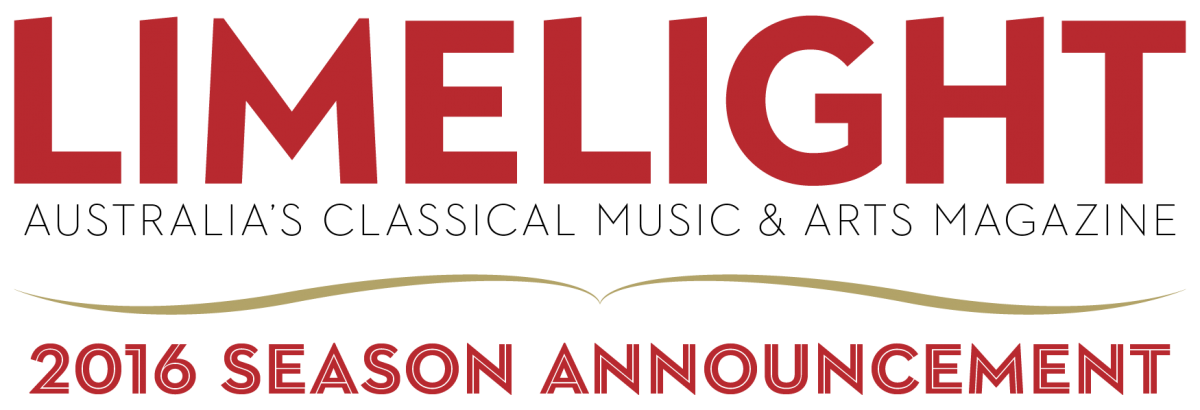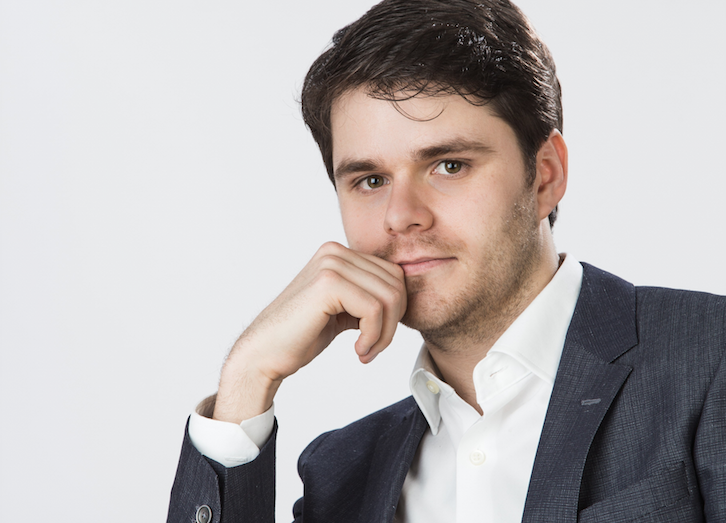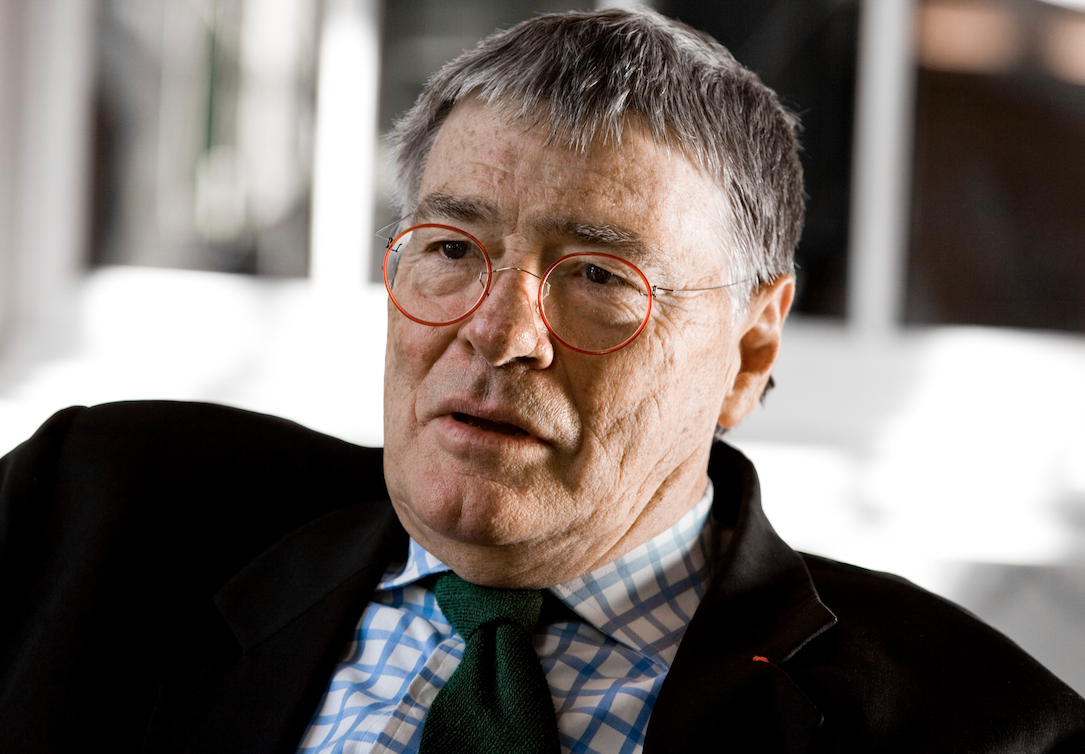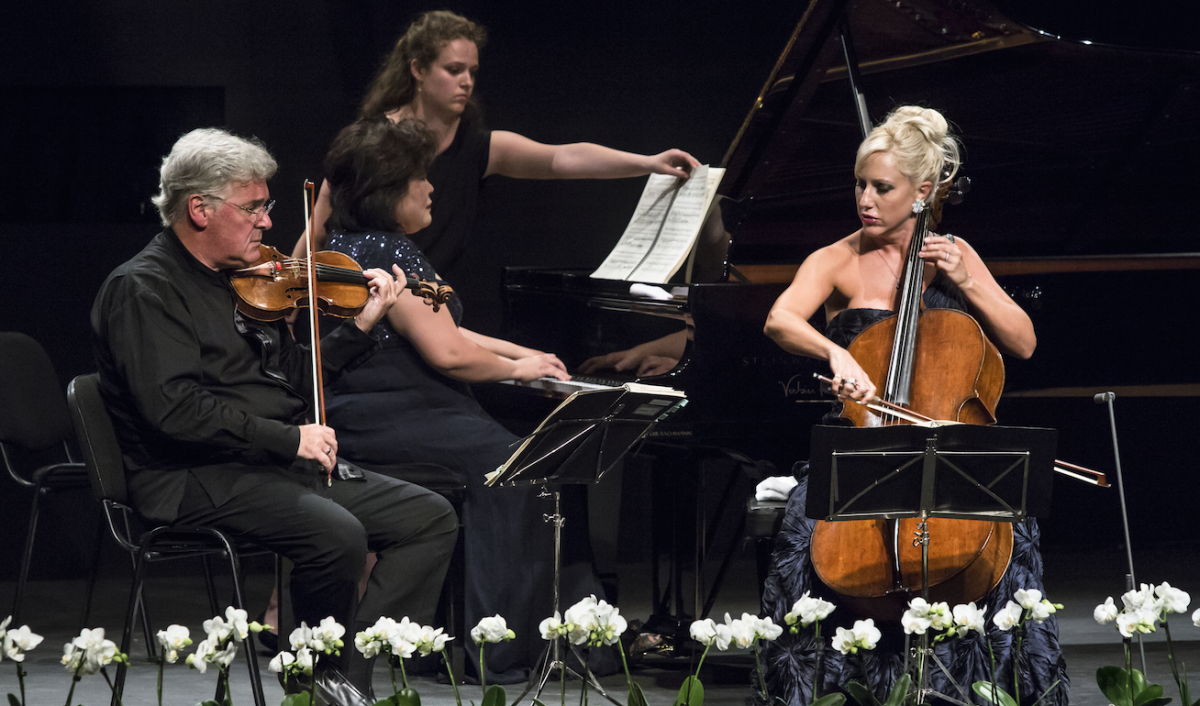The new Principal Conductor of the Adelaide Symphony Orchestra has curated a year of big pieces and big names in 2016.

With the announcement of his appointment as the new Principal Conductor of the Adelaide Symphony Orchestra in April, Nicholas Carter made history. Not only was the prodigiously accomplished 30-year-old conductor the youngest person ever charged with leading one of Australia’s state orchestras, but he was also unique for being the sole home-grown maestro in one of Australia’s top orchestral jobs.
The buzz around Carter’s appointment was palpable as many applauded the bravery of the Adelaide Symphony Orchestra for being willing to buck the trend of fly-in-fly-out international conductors manning the helms of the nation’s great orchestras. However one question has lingered subtly in the air since Carter stepped into the very big shoes of his predecessor Arvo Volmer: could such a relatively inexperienced (although unquestionably skilled) conductor deliver the artistic leadership required to maintain ASO’s standing within the ranks of Australia’s finest symphony orchestras.
 Nicholas Carter
Nicholas Carter
Today the answer to that questions was invariably “yes,” as Carter’s debut season for ASO not only showed an impressively assured amount of level-headed restraint and artistic savvy, but also a grasp for striking a balance between the crowd-pleasing box office draws that are a necessity for any modern orchestra, and those more obscure or neglected gems of the orchestral canon that deserve to be heard. However this well-judged offering for 2016 is not Carter’s triumph alone. He has co-curated the season with two formidable collaborators as part of the ASO’s new “Artistic Leadership Team”: Principal Guest Conductor and Artistic Adviser Jeffrey Tate, and Artist-in-Association violinist Pinchas Zuckerman. The combined experience and insight of this talented trio has allowed a comprehensive approach to assembling this season, which also celebrates the 80th anniversary of the founding of the ASO in 2016.
“In one sense the combination of Jeffrey, Pinchas and I is a representation of the orchestra trying to look to its heritage and where it’s come from over the past 80 years while also looking to the future as well,” Carter observes, as he speaks to me by phone from Berlin where he is Kapellmeister of the Deutsche Oper. “For example, Jeffrey’s a conductor who’s worked with the orchestra over the space of 15 or 20 years now, so in one sense that anchors our 80th season to the rich heritage that Adelaide Symphony has. And then in appointing a 30-year-old principal conductor, this has shone the light forward to where the orchestra would like to see itself heading, with an approach that’s tied to the challenges of the modern classical music scene.”
This nostalgic yet progressive strategy will see a huge variety of music presented next year, from Baroque to Beethoven, Berlioz to Brahms, Wagner to Stravinsky, as well as a heartening amount of new, or recently written Australian work. For Carter, his responsibility to the orchestra is also keenly linked to negotiating the evolving tastes of contemporary audiences – a challenge that orchestras all over the world are facing. “You’d have to have your head in the sand not to appreciate that the landscape is changing, not just here but also in Europe and the States” he says. “But I’m hugely optimistic about it too because what we do is of immeasurable importance to the health of the city and society as well.”
To this end Carter has had to restrain any personal chutzpah, taking a more cosmopolitan approach to programming his debut season. “It was very important for me not to come in and just exclusively do repertoire that I love – a Xenakis festival or a festival of Luigi Nono for example. There’s nothing to be gained from that. What we’ve tried to do is find something for everybody,” Carter shares. “And I think it’s important that we acknowledge that there’s different audiences for different repertoire. There are certainly audiences who love their Beethoven Five, but there are also audiences who like more contemporary music, and what I’ve tried to do, as much as possible, is marry those two things.”
 Jeffery Tate
Jeffery Tate
As well as Beethoven’s Symphony No. 5, Carter will also be conducting audience favourites like Stravinsky’s Petrushka, Berlioz’s Symphonie Fantastique, and opening the 2016 season, a concert performance of Act 1 of Wagner’s Die Walküre starring mezzo-soprano Michelle DeYoung and tenor Simon O’Neill. Sharing the podium with Carter next year will be some the world’s leading conductors including Mark Wigglesworth conducting Elgar, Simone Young conducting both Schubert’s Unfinished Symphony and Mahler’s Symphony No. 6, Yan Pascal Tortelier who will lead a programme of Russian masterworks, and a return for ASO’s former Music Director Arvo Volmer, conducting Nielsen’s Fourth Symphony, Inextinguishable. Yet alongside these sure-fire hits will also be lesser-known works, including an extremely rare performance, under the baton of Carter, of Messiaen’s early masterpiece Le Tombeau Resplendissant, written in 1931 when the composer was just 23.
Overwhelmingly however the focus of 2016’s contemporary repertoire shall be on Australian music, with performances of new or recent work by Ross Edwards, James Ledger, Andrew Ford and Annie Hui-Hsin Hsieh. With so many Aussie works represented it might appear that championing local artists has been a conscious choice of Carter’s, but he reveals that the glut of new Australian music was the result of a more organic process. “We didn’t set out to make a point of shining the spotlight specifically on Australians, but when there’s great music out there by these guys then their voices should be heard,” he shares. “Similarly with Australian performers as well. We were quite chuffed when we started to write a list of all the Australian conductors and soloists who are coming through next year as we realised what a great line-up it was. Again, we didn’t set out to make a point of exclusively focusing on Australian talent. We’ve programmed them on their merit as artists.”
Among the Australian musicians appearing with ASO next year are Grace Clifford, Chris Dragon, Toby Thatcher, Jason Gillham, Ben Northey and Konstantin Shamray, as well as soloists selected from the orchestra’s ranks such as Natsuko Yoshimoto, Imants Larsens, Simon Cobcroft, Geoffrey Collins, Mark Gaydon and Adrian Uren. An impressive roster of international artists will of course also feature in 2016’s offering including performances by Brazilian pianist Nelson Freire, violinist Noah Bendix-Balgley, the newly appointed concertmaster of perhaps the world’s most revered orchestra, the Berliner Philharmoniker, and British violin superstar Tasmin Little.
 The Zuckerman Trio
The Zuckerman Trio
Both Zuckerman and Tate will have important moments in the season that play to their strengths and reflect on their personal histories with the ASO. Tate’s distinguished career with the orchestra was cemented in 1998 when he conducted what was a truly pivotal moment in the annals of Australian arts: the State Opera of South Australia’s performance of Wagner’s epic Ring Cycle. He will be showcasing his deep understanding of the grandeur and monumental scope of the Romantic repertoire with performances of Strauss’ Ein Heldenleben and Brahms’ Third Symphony. Zuckerman will deliver a series of concerts celebrating chamber music, culminating in a performance of Beethoven’s Triple Concerto alongside the two other members of the Zuckerman Trio, his wife, cellist Amanda Forsyth and pianist Angela Cheng.
A year of variety, big pieces and big names await music lovers in South Australia, and future seasons also look set to feature an expansive range of music, under the leadership of Carter, Tate and Zuckerman. “I think it’s important for the orchestra, it’s important for me, and it’s important for audiences in Adelaide to see as broad a repertoire presented to them as possible,” Carter says of the future for ASO. “It’s vital that we traverse the full gamut of the compositional spectrum, presenting works from Baroque, through to Classical, through to Romantic, Late-Romantic, 20th-Century and Contemporary.” But more than merely pandering to the tastes of those more conservative or tradition-minded classical enthusiasts, Carter hopes to educate future concertgoers on the merits and marvels of modern repertoire – an area of music which remains stubbornly unpopular with many. “I would love one day be able to put together a programme, say of Ligeti, Brett Dean and Thom Adés for example, and have it sold out,” he says. “That’s not going to happen overnight but I think it can be done. If the value of the music is explained and audiences are introduced to this music in the right kind of way then they’ll see the quality and they’ll see that their life can be enriched by this music as much as it can be enriched from a Brahms symphony or a Sibelius symphony.”
Full details of Adelaide Symphony Orchestra’s 2016 season, tickets and subscriptions are available now.











Comments
Log in to join the conversation.